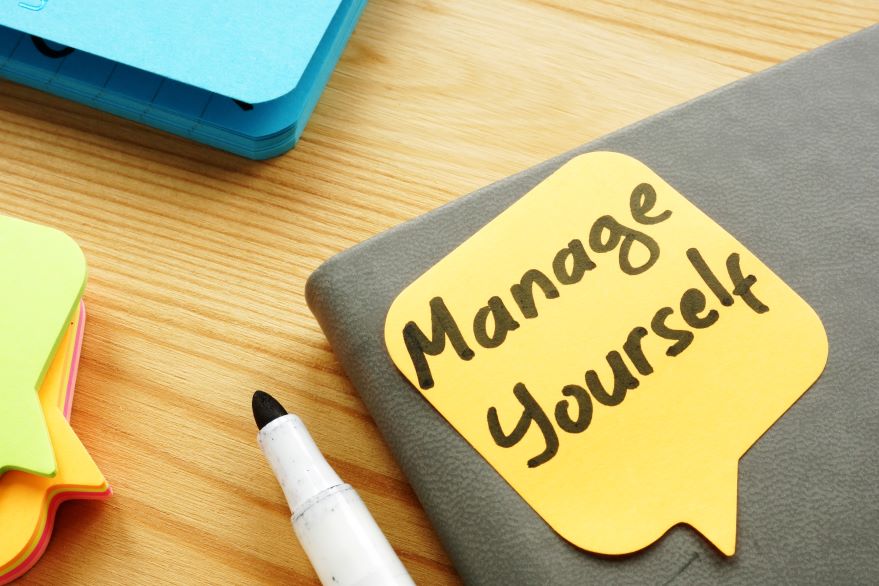
Managing Yourself So Others Don’t Have To
Zig Ziglar said, “You must manage yourself before you can lead someone else.” So, if you do not manage yourself well…someone may do it for you. Consider two examples. An employee loses their temper in a meeting and explodes at a teammate. The manager ushers the employee out of the meeting into a private room and begins to try to calm the employee down. The manager is working to manage the employee’s emotions because they were unable to manage them. Another example is a manager consistently fails to turn in monthly team reports on time to the CEO. The CEO and the manager’s team have all worked with the manager to help them turn the reports in on time to no avail. In this case, a team of people worked to manage this manager. The manager was eventually fired. We all have good and bad tendencies and behavioral drives that help us or hurt us if we do not manage ourselves well. Are you open to exploring how we can better manage ourselves so others don’t have to?
There are a number of ways you can manage yourself better. Here are four strategies that may help you get started. They are:
- Emotional Intelligence
- Knowing Your Tendencies
- Leading Yourself
- Cultivating Consistency
Emotional Intelligence
Emotional Intelligence (EQ) is about managing your emotions, being aware of your effect on others, and understanding the needs and behaviors of others. EQ increases your well-being, decreases stress, and improves your decision-making and leadership ability. Check out a CLG blog from November 2024 about EQ and how to manage your emotions. When you begin managing your emotions well, you become more productive in your work and relationships and you do not have to clean up messes you have made from out-of-control emotions. And other people do not have to manage you.
Knowing Your Tendencies
Have you ever wondered why you behave in a certain way in certain circumstances? Maybe you become reserved in a room full of people but interact comfortably one-on-one? Possibly you do not like interruptions throughout your workday and don’t understand why? Our behaviors are responses to our needs. Our drives create needs. Here is another way to present this information:
- People have drives.
- Drives create needs.
- Behavior is a response to needs.
Knowing your drives and needs leads you to self-awareness and a better understanding of why you behave the way you do. Becoming self-aware helps you identify negative tendencies that may be getting in your way and wrecking things. When you begin to intentionally recognize negative tendencies you can identify the actions tied to those tendencies and call yourself up to better behavior. This will result in better consequences and realities for you.
Remember, part of EQ is about knowing how your behavior affects others so managing your negative tendencies and calling yourself up to better behavior allows you to manage yourself well so others will not have to.
Leading Yourself
“Act like the person you want to become” is a famous quote many authors and leaders use. I like Mel Robbins version of it, “Intentionally act like the person you want to become.” Leading yourself well requires intentionality.
For example, my body has a certain window of time each night where it is easy for me to fall asleep so I have established a bedtime for myself between 10 – 10:30 PM. If I try to fall asleep before that time, I will most likely toss and turn. If I stay awake after that time, I will be up for most of the night. I have to lead myself well by intentionally going to bed around the same time each night in order to sleep well. When I am well-rested, I feel better, have more energy, and my emotional intelligence is good.
According to this Inc. article, adults make more than 35,000 decisions a day. That is a lot of opportunities to lead yourself well, right? It is also very draining. Decision exhaustion can lead you to making bad choices. It is good to practice being present and intentional in all you do but you don’t need to start with all 35,000 decisions. Start with what matters most as it relates to who you want to become. When you lead and manage yourself well, others will not have to.
Cultivating Consistency
People who have a steady, consistent attitude and demeanor are easy to be around because people around them do not have to wonder what mood they will be in that day. Showing up every day as your best self requires consistency. This does not mean you disregard negative feelings or hard times. It simply means you manage those emotions and situations in an emotionally mature way. Being consistent also includes showing up on time and getting your work completed on time. When you are consistent, you are managing yourself well so others do not have to.
So where do you go from here?
CLG uses science and leadership tools to help people manage themselves better. Have you found yourself in a situation where others are having to manage you? Contact us today to continue the conversation.
-Melissa Spangler
